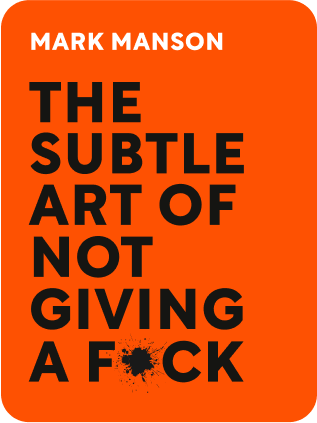

This article is an excerpt from the Shortform book guide to "The Subtle Art of Not Giving a F*ck" by Mark Manson. Shortform has the world's best summaries and analyses of books you should be reading.
Like this article? Sign up for a free trial here .
Does your partner ever reject your feelings? How is learning to reject certain feelings and values of others actually a healthy thing?
If you don’t have any rejections in love and in life, then you have no values. It’s normal and healthy to have different values than your partner but you must set boundaries because you can’t be responsible for your partner’s problems.
Keep reading to learn how rejection in love can lead to a healthy balance.
The Importance of Rejection in Love
Our culture tells us to always be positive and accepting of everything — to say yes. But you have no values if you view everything as equally valuable. Values give your life meaning and purpose.
Choosing certain values automatically precludes others. For example, if you choose the value of having a good marriage, you have to reject values that would undermine that, like indiscriminate sex. We’re defined by the values we reject as well as by those we choose. We have to do both.
It comes back to giving a f*ck about some things, and rejecting or choosing to not give a f*ck about others.
An inability or unwillingness to practice rejection leads to unhealthy love relationships. It blurs the boundaries between partners when one or both assume responsibility for the other’s feelings, rather than rejecting that role.
To have a healthy relationship, there must be firm boundaries between the partners and their values. Each person must:
- Accept responsibility for their problems, and refuse to take responsibility for their partner’s problems.
- Work on their own problems with the other’s support.
- Be willing to both reject and be rejected by their partner.
Over-Identifying With Your Partner
Literature and entertainment extol unhealthy relationships. They promote a notion of romantic love in which two people over-identify with each other. It’s characterized by drama, displays of emotion, and roller-coaster ups and downs.
- Shakespeare’s Romeo and Juliet represents the epitome of unhealthy love — which of course ended in tragedy. Some scholars believe the play was written to satirize this concept of love and show how warped it is.
However, romantic love hasn’t always been celebrated. Until the mid-19th century it was viewed as a distraction and an impediment to getting important things done, like farming and other methods of making a living. Most marriages were arranged with economic stability as the priority.
Romantic love can be like an addiction, giving temporary highs but creating long-term problems.
- It’s characterized by entitlement on the part of one or both people.
- They either assume responsibility for their partner’s problems, or they hold the other person responsible for their problems. They do this to escape their own problems.
Blurred boundaries are reflected in statements such as: “How could you make me feel so stupid in front of my sister?” “Don’t do that to me again.” “Stop going places without me — you know it makes me jealous.” People who say these things push the responsibility of how they feel to their partners, instead of taking personal responsibility and making a choice about how they feel.
Rejection in Family Relationships
Responsibility-shifting can happen in family relationships too. For instance, a mother fixes all her children’s problems, and they grow up believing others should take care of things for them. (This is why problems in your relationship can echo those of your parents.)
Entitled people blame others or accept blame or responsibility for another because they’re trying to feel loved.
- If they play the role of victim, someone will save them and they’ll feel loved.
- If they fix the other person they will be loved and appreciated.
Victims and savers are attracted to each other (people with healthy boundaries don’t interest them), but they end up unable to meet each other’s needs. Each is selfish, and uses the other to get a high.
- Since the relationship is conditional, they’re afraid it will fall apart if they reject the other’s demands. By contrast when temper flare-ups happen in healthy relationships, feelings may be hurt temporarily but neither is responsible for the other’s feelings because they know that rejection in love is normal.
Maintaining boundaries in a healthy relationship doesn’t mean partners don’t help and support each other. They support each other by choice, rather than due to pressure or a feeling of obligation.
In a healthy relationship, you don’t need to give a f*ck about everything your partner cares about. But you care about your partner regardless. Your love is unconditional.

———End of Preview———
Like what you just read? Read the rest of the world's best book summary and analysis of Mark Manson's "The Subtle Art of Not Giving a F*ck" at Shortform .
Here's what you'll find in our full The Subtle Art of Not Giving a F*ck summary :
- How to clarify what's important to you (and not just what you think should be important)
- Why it's okay for things to not always go well in life
- Why you need to care about fewer things






